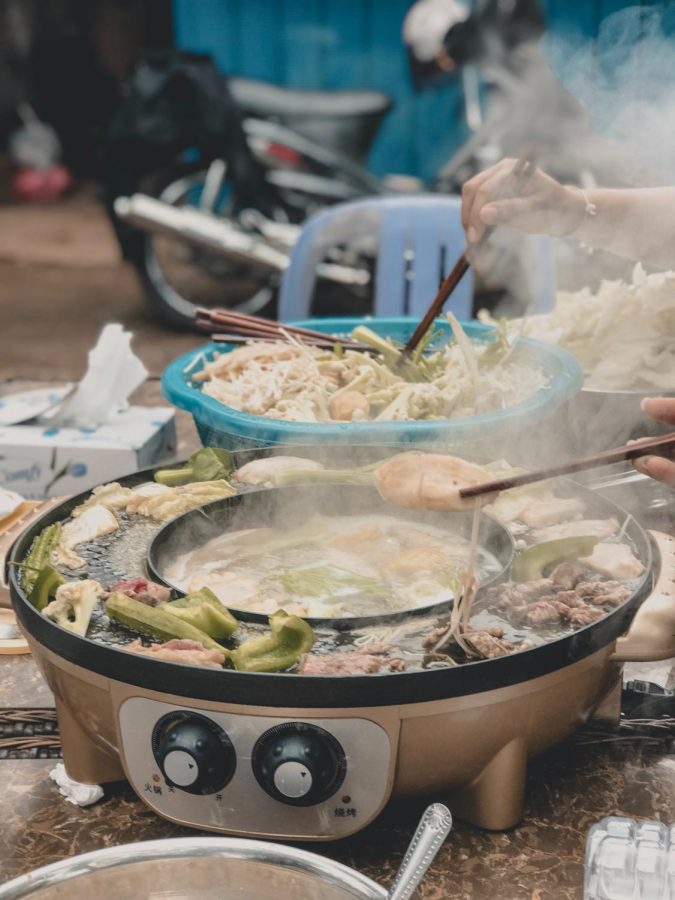The Chinese New Year and “second chance” New Year’s resolutions
January 22, 2023
January is wrapping up… how are those new year’s resolutions going? If you are like the 59 percent of young Americans (18-34) who set new year’s resolutions, your pursuit of successfully sticking to a resolution has also likely wrapped up. According to Forbes, only nine percent of Americans successfully stick with their new year’s resolutions. However, don’t fret, there is good news – a second chance! Not everyone celebrates new year’s according to the Gregorian calendar on January 1st. For example, the Chinese New Year occurs on the new moon of the first lunar month, falling somewhere between the end of January and February each year. Which means, this year, it falls on January 23rd, providing a second chance at new year’s resolution redemption.
While there are similarities between the respective New Year’s celebrations, the main thrust of the Chinese New Year has far less to do with midnight champagne toasts or eating a little better and exercising a little more. Though Chinese New Year festivities do not include resolutions for self-improvement, it may provide a fresh perspective on the new year and your resolutions.
Chinese New Year is one of the most significant holidays in Chinese culture and spans over two weeks beginning with New Year’s Eve and ending with the Lantern Festival held on the 15th day of the year. The day- long festival revolves around a variety of different myths as well as various regional customs.
UW-Whitewater Junior, Yingxin Lin, recalls some of her family’s Chinese New Year traditions, “my parents and I will all stay home and gather around and eat hot pot, it’s very chill, we will talk, my father will share old photos of us, and then we will watch television together.”
One of the main aspects associated with Chinese New Year’s Eve is a reunion dinner which in some regions commonly features a communal hot pot as it signifies the gathering of family members. Hot pot consists of a large communal bowl of a rich broth accompanied by a variety of vegetables, noodles, meats, and accompaniments. Traditionally each day of the week- long festival is associated with certain customs, such as cleaning the house to prepare the way for incoming good luck, giving gifts of money, or lighting firecrackers. One of the strongest focuses of the festivities though is the reunion of family members and visiting friends and relatives.
“Chinese New Year is much like American Thanksgiving, family members gather around and eat…normally my whole family will meet up and gather at my grandmother’s house in China, we will talk, have a big meal, stay up really late, watch fireworks or watch shows, and just chill,” Junior Mathematics major, Yingxin Lin.
Lin, who was born in Fuzhou, China, and later moved to Fond Du Lac, Wisconsin with her family spoke of the difficulty in gathering with extended family members in the recent years, “I haven’t been back in many years now, with Covid restrictions and everyone’s busy schedule, so it has just been me and my parents gathering.”
The difficulty in reuniting with family members, particularly extended family as children grow up and move away and start their own lives, not to mention the added complications of Covid-19 over the recent years is something that likely resonates with many people. The Chinese New Year traditional focus of reunification of family offers a different perspective when thinking about the start of a new year and possible New Year’s resolutions. According to Forbs.com, of the top eight resolutions for 2023, seven were focused on individual pursuits, such as exercise, drinking less, or saving more money. In considering your own “second chance” New Year’s resolutions in connection with the Chinese New Year, it might be beneficial to consider resolutions that focus less on individualistic goals and more on community and giving. As Lin summarizes, “Chinese New Year is really about reunification and unity.”














¿Cuánto cuesta un divorcio de mutuo acuerdo en Virginia? • Jan 23, 2023 at 5:04 am
Gracias por tu valiosa información. Este articulo es muy util.
¿Cuánto cuesta un divorcio de mutuo acuerdo en Virginia?